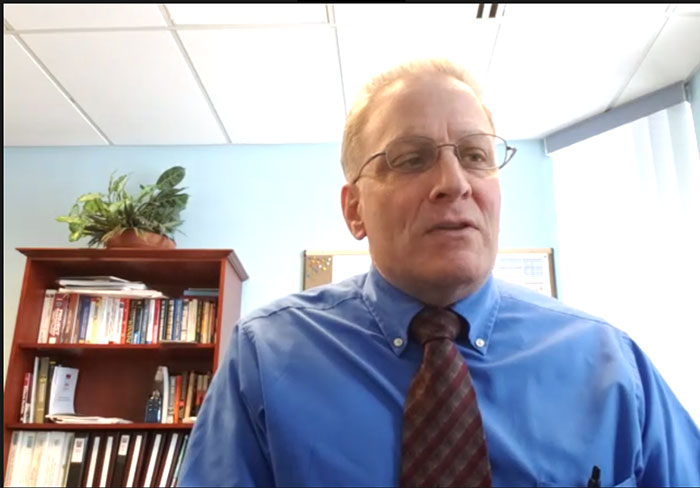Research Forum Lays Groundwork for Diversity, Future Success

In an effort to build and broaden relationships with a diverse range of academic institutions across the country, the U.S. Army Medical Research and Development Command participated in the "U.S. Army Research Opportunity Forum for HBCUs (Historically Black Colleges and Universities)" on February 19.
The event, designed to share partnership, research and internship opportunities with HBCUs, further demonstrates the Army's commitment to inclusion as a principal operating tenet. In addition to appearances by a wide variety of representatives from both the U.S. Army and HBCU faculty from across the U.S., the virtual event also featured remarks from acting Secretary of the Army John Whitley, who used the occasion to explain in greater detail the Army's dedication to building strong, enduring partnerships with a diverse array of academic outlets.
"The Army's commitment to these efforts is very deep and spreads across the entire organization," said Whitley, who encouraged attendees to look at the Army's burgeoning efforts inside the fields of medical technology and cyberspace in addition to its noted infantry capabilities. "We are focused on establishing partnerships at universities to build our capabilities in that arena, [and so] cyber is encoded in everything we do."
Chiefly, the event focused on presentations by a number of specific Army Commands documenting opportunities to conduct partner research and procedures by which to compete for research grants. Presentations by USAMRDC personnel centered on current high-priority research efforts along with likely future areas of interest. The Command's enduring efforts to prevent, detect and treat the ongoing novel coronavirus pandemic were also a topic of discussion.

"We can't operate a program like ours in isolation — we certainly rely on collaboration to get the job done," said Dr. Mark Dertzbaugh, Acting Principal Assistant for Research & Technology at USAMRDC, who spoke at length on current collaborations between HBCUs and Command laboratories in Alabama and Maryland, specifically. "There's plenty of opportunities for students and potential scientists [at MRDC], and we're certainly eager to provide that information to people."
In addition, the Army used the occasion to announce a pair of new initiatives specifically targeting the HBCU community. The first, an HBCU-focused prize competition, will allow for both students and faculty to compete for research money and, additionally, cash prizes. The second, a joint Army-HBCU immersion program, will seek to place HBCU personnel of all levels into Army labs to focus on Army-relevant research.
"Increasing these types of research efforts for faculty and staff allows for sustained institutional transformation and develops more competitive research programs," said Dr. Quinton Ross, Jr., President of Alabama State University.
"This puts the Army [science and technology] community on a path to build relationships with each and every one of you," said Dr. Philip Perconti, Army Chief Scientist and Deputy Assistant Secretary of the Army, Research & Technology, who served as the moderator for the event. "The Army cannot accomplish its mission without the contribution of all of society."
Following initial presentations, the assembled attendees split into a series of small group discussions focusing on such topics as civilian career opportunities and technology entrepreneurship efforts within the Army. In addition to USAMRDC, presenters at the forum included the U.S. Army Combat Capabilities Development Command, the U.S. Army Corps of Engineers and the Space and Missile Defense Command, among others.














